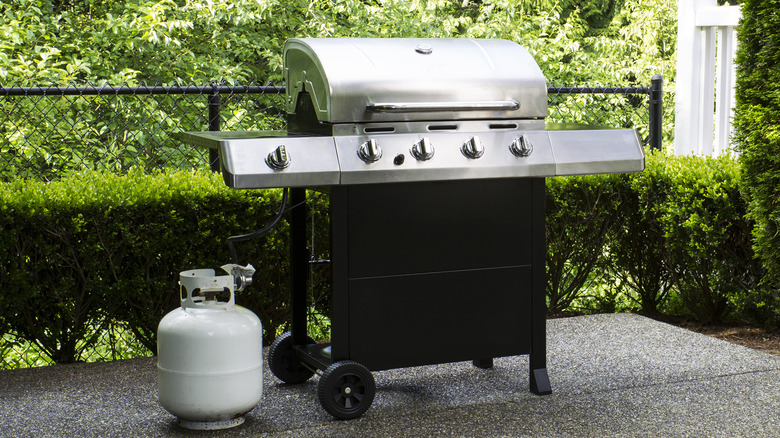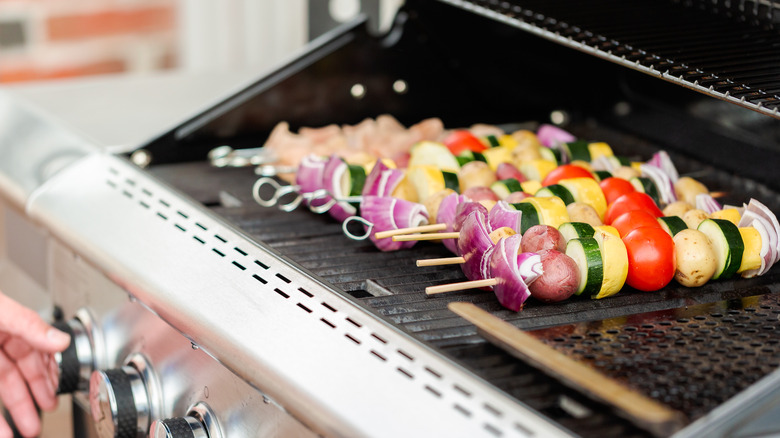How You Should Be Storing Your Grill's Propane Tanks
Clean, efficient and with a long shelf-life, propane tanks are a great choice when it comes to fueling your grill. However, like natural gas, there are risks when it comes to using propane. Although it's not time to pack away your grill just yet, it's never too early (or too late) to learn the importance of properly storing your grill's propane tanks.
A colorless, odorless gas, propane is extremely flammable and can wreak serious havoc if not handled correctly. Also known as LP-gas, Foster Fuels shares that propane can be produced from natural gas or by refining crude oil, liquified under extreme pressure, and put into tanks that we can then use for activities like grilling. Despite the fact that 61% of Americans use propane for their barbecuing endeavors (via Hearth, Patio & Barbecue Association), many are unaware of how to actually store their tanks safely — luckily, we're here to help.
Keep tanks outside to minimize danger
Once barbecue season is over, winterizing your grilling equipment is necessary. While it might seem like a hassle, it'll protect your gear and ensure your safety. After shutting off your propane gas tank completely, you might decide to store the grill itself in your garage or shed. But when it comes to storing your propane tank, you might want to think twice.
According to Reader's Digest, you should always store your propane outside since the risk of leakage (paired with poor ventilation) could result in an explosion, which can be particularly damaging if it happens in an enclosed location. Instead, keep your tanks outside in an upright position.
While freezing temperatures aren't an issue, Kauffman Gas notes that high temperatures can cause pressure to build inside the tank, which can also risk explosion. This is why propane tanks should also be kept away from direct sunlight in a shaded area that won't exceed 120 degrees Fahrenheit.
Ferrellgas also advises keeping tanks at least 10 feet away from any flammable items outdoors. Likewise, propane tanks should be stored away from the reach of children since exposure to the gas can cause life-threatening carbon monoxide poisoning.
Whether your tank is fully, half-filled or empty, always remember to handle with care. Taking these extra precautions will eliminate potential hazards and ensure that you can keep grilling your favorite dishes for years to come!

